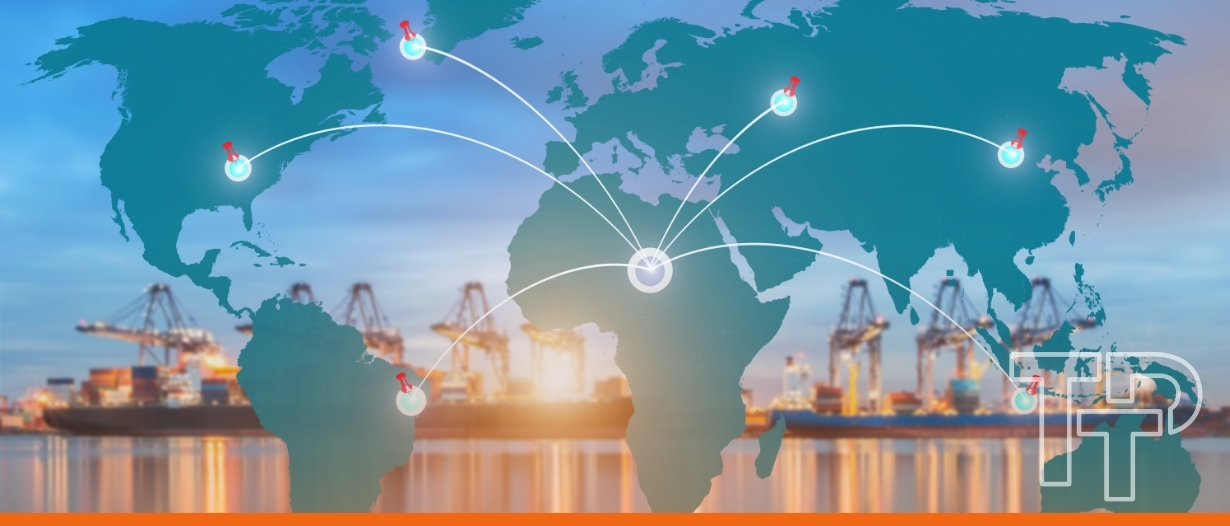PODCAST | Cross-border payments at a crossroad
Alan Koenigsberg
Jun 07, 2025
 Carter Hoffman
May 07, 2025
Carter Hoffman
May 07, 2025

As our world becomes increasingly digital, the digital divide has widespread implications, and the least developed countries (LDCs) are most likely to be negatively affected. In addition to the three levels of the digital divide commonly explored in the literature (i.e. the access gap, differences in digital skills, and differences in beneficial outcomes), data inequality should be included as a new level of the digital divide. Data inequality can further be classified into three divides: access to data, representation of the world as data, and control over data flow.
With these divides as the primary markers for data inequality and using international trade and investment as guideposts for economic development, this report aims to highlight the potential implications that digital advancements in the international trade industry will have in terms of widening data inequality. Given that the least developed countries are most impacted by data inequality and that there is a positive relationship between data availability and international trade and investment, data inequality can exacerbate economic inequality as international trade becomes more digitalised.
International trade and investment are major drivers of global economic development, and they play a key role in helping to attain several of the United Nation’s Sustainable Development Goals (SDGs), including SDG8: Decent Work and Economic Growth. The World Economic Forum articulates that “promoting trade, attracting private investment, and achieving export diversification” are key drivers in helping the world’s least developed countries (LDCs) shed this status.
To provide just one practical example of the potential benefits, one can look at the landlocked former Soviet satellite state of Mongolia, which liberalised its trade policy in 1996. Between 1993 and 2019, Mongolia experienced a 22% gain in welfare from expanded import opportunities and a 35% boost in its human development index. The nation’s GDP per capita, widely accepted as a proxy for the standard of living, also tripled from $4,923 to $15,963 (in constant 2021 international dollars) over this same time frame. While several factors had a role in this growth, including the development of Mongolia’s mining sector, without the benefits of trade and investment, this scale of development would not have been possible.
The digital divide is most prevalent in the world’s LDCs, landlocked developing countries (LLDCs), and small-island developing states (SIDS). In LDCs, only 20% of the population uses the internet – compared to 90% in developed economies – and when they do, download speeds are usually slow and prices are high. This divide between LDCs and the developed world is not getting smaller. The International Telecommunication Union observes that the gap between LDCs and the world in terms of digital differences has increased from 27% in 2011 to 30% in 2022. Data collection on a society-wide level is also lacking for developing countries, which “account for 99% of the estimated 48 million unregistered births globally, with South Asia and Sub-Saharan Africa together accounting for 79% of all unregistered births”.

As the digital economy continues to grow and evolve, the data-related divide between developed nations and LDCs grows alongside it. According to the United Nation’s Commission of Trade and Development (UNCTAD), “Developing countries risk becoming mere providers [of raw data, with their] data and associated value capture being concentrated in a few global digital corporations, [which are almost exclusively located in the world’s most developed economies]”. As long as developing countries lack ownership, equal access, and the autonomy to use their data, they will suffer severe economic and developmental disadvantages.

Tod Burwell
Jun 06, 2025
Trade Treasury Payments is the trading name of Trade & Transaction Finance Media Services Ltd (company number: 16228111), incorporated in England and Wales, at 34-35 Clarges St, London W1J 7EJ. TTP is registered as a Data Controller under the ICO: ZB882947. VAT Number: 485 4500 78.
© 2025 Trade Treasury Payments. All Rights Reserved.